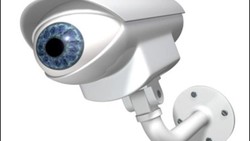Gimme the repo and I’ll get it to compile on Arch, latest testing packages as per 2025-10-20T22:12:00 on repo.30p87.de/archlinux
What colors are your thigh highs?
Black-white, preferably pink-white. I overcompensate a lot for boymoding.
It’s too funny to me that Arch of all distributions attracts the thigh /Unix socks crowd (for lack of better word). Nothing about Arch stands out for me in that regard, there’s no social statement or anything, and when I was more active in the community, it wasn’t known for that.
I was deep enough into Arch to run my own private repository using aurutils, but no thighs :(
I have them but I use Debian mostly.
Sounds like you really missed out
mine are pink white too :D
Sadly Im on Fedora.
Bad girl!
Distrobox is a wonderful thing
Both of these two cases are why Flatpaks are so attractive.
Flatpaks are better than Snaps, but properly maintained dependency trees and SBOMs are best, by a wide margin.
PopOS fucked me up with flatpaks
Gateway drug
They are extremely effective at preventing PackageKit updates on my steam deck
I’m going to be honest to you, I prefer appimages.
I respect your wrong opinion
I rarely encounter them. But they usually work when I do. But, ugh, they’re just kinda gross. Like, is this a .exe? No thank you. Don’t give me windows trauma.
I’m always like, “well, now where do I put this executable?”
But they do work
Clearly in $HOME/Downloads/ and forget that you left it there. Then use app(3).AppImage the next time when you redownload it. Keeps you running the most up to date version. It’s flawless.
I stick them in /home/bin/ like I would for a compiled app. I found a forum for mint saying thats the expectation for user apps with no specific install location, which is pretty much the issue, anyway.
I like appimages that are packages on AUR installed and updated using yay, so that I never ever learn that it is in fact a appimage disguised as repo package.
plus that extra defense-in-depth layer of a sandbox
They take up so much fucking space though
Are you running on a really space constrained system? I Used an old Chromebook with only 16Gb of storage for a bit, and to me it’s kinda fun to figure out alternative solutions and applications that can make a system like that work. But when I’ve got a system with 500GB+, I say who cares about the space packages take up.
Flatpaks are okay for stuff that doesn’t need deep access but they don’t work for many things.
TBH if it’s just for that I’d rather use nix packages. But flatpak’s sandboxed app are better for sus packages or proprietary-might-spy-everywhere packages.
I’ve had the opposite experience with flatpaks that I have with snaps. I don’t really use them much. But when I see that as an option I use it and it just works. Definitely a fan as a USER of them. I’m sure people have their complaints as users and developers. But I definitely have to say it’s been positive so far. Which is a rare consistency in the life of installing packages.
They work most of the time and I liked them, until I installed my first app that did not work because of the container thing and learning about and using flatseal ate so much of my time, that I never did it again.
I only use yay to install stuff now. And if not on AUR I make (copy and adjust existing) my own PKGBUILD, or find one on a random page of a user who did not publish to AUR yet.
You didnt waste those hours, you learned something.
Nothing that useful, apart from learning again that reading error messages properly can save you much pain.
That’s a useful lesson to have stick
Last week was the first time I think I’ve ever got a random Internet tarball to
configure,makeandmake install. Program even did what it was supposed to too. I was amazed.The last picture in the meme always bothered me, because the sequence doesn’t make any sense physically. (Popping the rake from mid air and doing the wrong flip and such)
So, I went on to find the sequence that I believe it was drawn from.

you think the sequence doesn’t make physical sense, but skateboarding on a rake is fine?
It’s like flying on a broom. Perfectly logical.
I know it’s completely off-topic, but anyway. No, I’m fine with the rake. That’s what’s makes it funny.
It’s the drawing of the skater that is too good, and that doesn’t add up with the other details being wrong. Someone who can draw a skater that good wouldn’t make the other things that wrong or even random.
The rake is drawn as doing a frontside shove-it, popped from mid-air and failing because of gravity suddenly changing in the middle of the sequence. The skater is “obviously” doing a varial heelflip instead of a frontside shove-it.
So that’s the clue to why I thought it was drawn off an actual picture. That the background is also a copy of the original only reaffirms my theory.
In hindsight I can also see that the skater is obviously Andrew Reynolds. The tuck and landing is his signature style.
I honestly can’t remember the last time I’ve come across a package that I needed that so obscure that it wasn’t found somewhere as at the very least an appimage, if not a flatpak. I haven’t had to build from source in I don’t even know how many years now.
What? Its something I do quite regularly.
Try making music on Linux. You’ll be compiling obscure shit and tweaking configs all the time.
True. But I was coming at if from the perspective of an every day user coming from Windows. email, word processing, internet, etc… Even gaming and photo editing.
The more professional the needed software gets, of course the more obscure it gets.
I think it depends on the distro. Nixos is pretty bad for this if you want to try out a project that is really new. If you wait a month or two a flake usually comes out somewhere.
General use package? Sure Specialized package to do something specific in a specific field? Good luck.
I still have flashbacks of installing a c++ library which had to be transpired (or whatever the term is) to c# for another library to work, and having to go manually fix several function and type declarations manually to make it work. And we are talking about the golden standard library in the field…
so true
and yeah i can confirm i’ve been using linux for 7 years…
No System Package
Build System Package
Gentoo makes it soo easy.
I installed and then ran Gentoo for about 9 months back when it first came out, before Robbins stepped down. I remember the install was pretty involved, but after that it was a pretty sweet system. I keep saying I’m going to go back to it, but just can’t be bothered anymore. As good as it was 20 years ago, I’m sure it’s even better now.
Yeah, basically handling all the caveats is now automated and you can choose to use binary packages.
God bless flatpak for these cases
*Laughs in Nix
*accidentally uninstalls python base package trying to fix dependency conflicts in apt
LMAO, back in my Slackware days (3.4, 3.6, 4.0, 7.0), If I had to build from source, which was most things, step1: ./configure step2: install the missing package step3: goto step1 until no missing packages identified step4: make step5: make install
Sometimes my packages were too old, So I would just go to step1 for each package that also needed to be newer. I’m not even a Linux Expert, and I definitely wasn’t a Linux Expert then. All the building from source helps me jump into software projects and become productive real quick though.
When the dependencies need dependencies and then those dependencies need dependencies, the rabbit hole is endless!
For those of you old enough to remember, rpm dependency hell
Times like this are an argument for why it’s OK to occasionally reinvent the wheel.
no system package
install distro that has it on a chroot
Yeah sure, I gonna setup everything again just because a single piece of software is not available on my pc
distrobox create… done
As a non IT person I find Linux way better for installing software. The sort of apps non IT people use. The Software store has most of what I need. There rest I install the Windows way. From a website. Apps with a Linux version almost always detect and offer a Linux button to click to install. I wouldn’t know what to do if that didn’t work. Ditch that application I guess. My distros are pretty standard. Not hacked about. My apps are not too weird. I’ve been doing it this way for 14+ years. Never needed the CLI either.
pfft. ln -s new_library.4.4.7 old_library.4.2.8
all done!
If it would be that easy. The problem I had was, that I installed a dependency using my package manager, but to compile my originally wanted software I had to provide a cmake file (of the dependency I installed via my package manager) to the compiler, which I of course did not have.
This often comes with the *-dev version of the dependency. The normal one contains the binaries, the dev version includes headers and often the FindPackage
yeah that’s different
I wish Lemmy was able to have emoji reactions to comments just so I could react with a horrified face to this comment.
In lieu of that, I’ll just have to put it here: 😱
it is no big deal if the package dependency for a library just got swept up in the upgrade cycle. if the needed function call didn’t change, no problems. else you just get a linker error.











